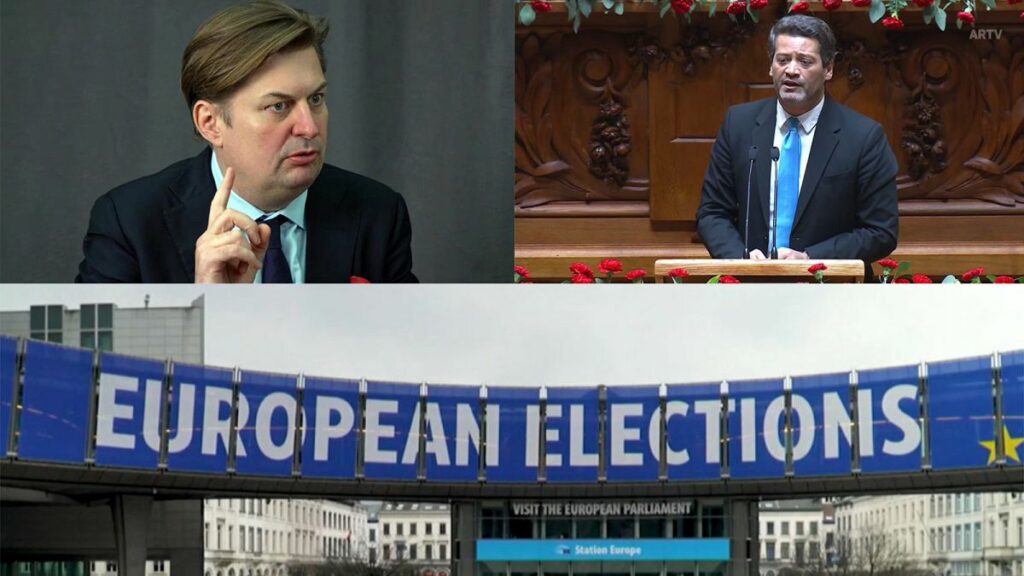“We need more power to the nation states,” he declared. “We need less competences in Brussels, and more competitiveness. But we need, a common approach when it comes to trade agreements, customs, and to the guidelines of foreign policy.”
In the eastern State of Thuringia, AfD is well placed to become the main political force in the new State Parliament, despite being under surveillance for its ties to Neo-Nazis. Björn Höcke, Thuringian AfD’s leader and top candidate for the state election, has recently been ordered to pay a fine for deliberately using a banned Nazi slogan at a campaign speech. Five years ago, another court ruled he can justifiably be called a “fascist”.
Democracy under pressure
According to the experts of the ‘Thuringia Project’ democracy is coming under pressure all over Europe, as authoritarian populists are trying to change the rules of democracy from within:
“At State level in Thuringia, an AfD Minister President could abolish public service broadcasting with a signature,” says Friedrich Zillessen, editor of the Constitution Blog and of the Thuringia Project. “It could influence cultural policy in schools and set priorities differently. And these are all formally legal options, but they are causing distress to our democracy as a whole,” he added.
From a country with a deeply entrenched far-right vote, I travelled to Portugal where a protest vote propelled the radical right group to the centre stage. In March’s general elections, the far-right party Chega won 50 seats in parliament. It became Portugal’s third political force. For leftists it was a heavy blow in the month that Portugal marked the 50th anniversary of the end of Salazar’s nationalist dictatorship.
Chega’s challenge to the establishment
As Lisbon celebrated this historic moment Euronews met André Ventura, Chega’s founder and leader, in the national parliament. He presented himself as an anti-establishment politician aiming to reform justice and the economic and the political system. He slammed Portugal’s current democracy:
“We were never, in fact, a super democratic country. Chega was the first party, in the entire history of democracy [in Portugal] to succeed in breaking the two-party system,” said André Ventura.
Ventura founded Chega, which means “Enough!”, in 2019. In only five years his party has gone from winning 1.3% of the vote, to 18% at the recent general election. The leader of the centre-right coalition that topped the poll has refused to ally with Chega, but some of the party’s populist allies in the European Parliament Identity and Democracy group are enthusiastic.
“The best way to defend Europe is not to dismantle the European Union, but we cannot let the EU destroy the identity of all countries and define things like immigration, our fiscal policy, our economic policy. What we eat, what we can eat or not.”
Despite splits and cracks, the European far-right looks like it is here to stay. The question is, will radical parties win enough in the upcoming European elections to influence policies and lawmaking? One thing is for sure, the June poll will be a test for liberal democracy and Europe, as we know it.
Click on the video above to watch the episode in full.
Source link : https://www.euronews.com/2024/05/31/will-the-far-right-win-big-in-the-eu-elections-a-focus-on-germany-and-portugal
Author :
Publish date : 2024-05-31 07:00:00
Copyright for syndicated content belongs to the linked Source.
